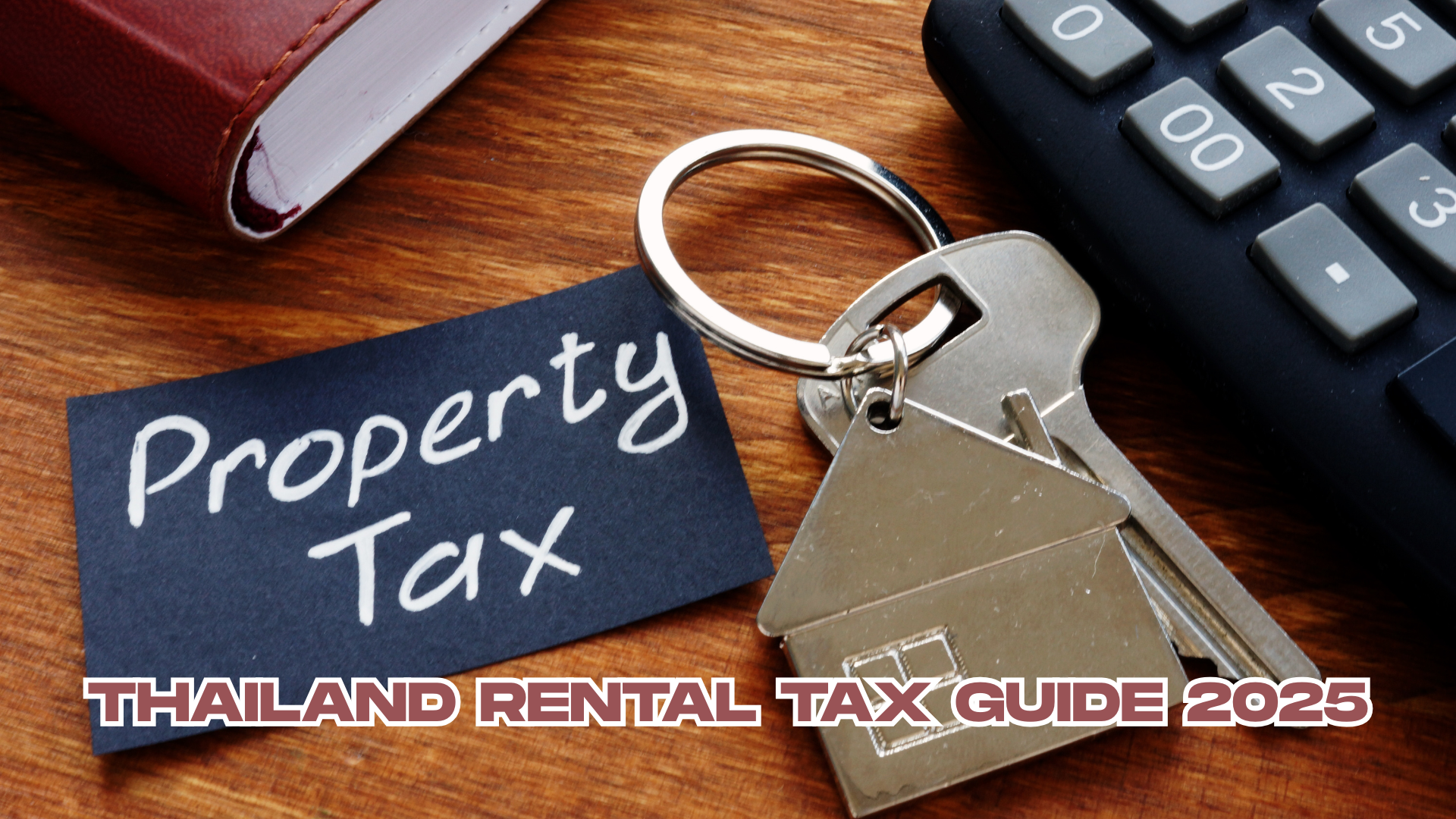Thailand Property Rental Taxes: A Clear Guide for Landlords in 2025
27 November 2025
As Thailand’s rental market continues to grow—especially in high-demand cities like Pattaya, Bangkok, Phuket and Hua Hin—property owners increasingly want clarity on how rental income is taxed. Whether you are a Thai national, long-term resident, or foreign investor living overseas, rental income from Thai real estate is subject to Thailand’s tax regulations.
This guide explains who must pay, how tax is calculated, deductions, Tax ID requirements, and filing steps for landlords in Pattaya.
Who Must Pay Tax on Rental Income in Thailand?
Under Thailand’s Revenue Code, any person earning rental income from property located in Thailand must pay tax, regardless of nationality or where the income is received.
This includes:
-
Thai citizens
-
Foreign property owners
-
Residents and non-residents
-
Owners of condos, villas, houses, or land
If the property is in Thailand, the rental income must be declared in Thailand.
Tax Identification Numbers (Tax ID) for Landlords
To file rental income tax correctly, landlords must have a Tax Identification Number (TIN). Requirements differ depending on the ownership type.
✔ Thai Landlords (Already Have a Tax ID)
Thai nationals already possess a Tax ID.
It is the 13-digit number printed on their Thai ID Card.
No additional registration is required for Thai owners to declare rental income.
✔ Foreign Landlords (Must Apply for a Tax ID)
Foreign owners must obtain a Thai Tax Identification Number before filing rental income.
This can be done at any local Revenue Department office, including:
-
Pattaya–Jomtien Revenue Office
-
Banglamung District Revenue Office (Naklua)
Common documents required:
-
Passport
-
Visa stamp or arrival record
-
Proof of property ownership (Chanote / sale agreement)
-
House registration (if applicable)
Once issued, the Tax ID is permanent.
✔ Properties Owned Under a Thai Company
A Thai-registered company already has a Corporate Tax ID, shown on the first page of the company affidavit / DBD registration document.
For company-owned properties:
-
Rental income must be declared under the company’s tax system, not personal income
-
Corporate tax rules apply instead of the progressive individual tax brackets
Rental Income Tax Brackets (Progressive Rates)
Thailand uses progressive personal income tax rates for individual landlords:
| Income Bracket (THB/year) | Tax Rate |
|---|---|
| 0 – 150,000 | 0% |
| 150,001 – 300,000 | 5% |
| 300,001 – 500,000 | 10% |
| 500,001 – 750,000 | 15% |
| 750,001 – 1,000,000 | 20% |
| 1,000,001 – 2,000,000 | 25% |
| 2,000,001 – 5,000,000 | 30% |
| 5,000,000+ | 35% |
How Much of Your Rental Income Is Taxable?
✔ Standard 30% Deduction
Landlords automatically receive a 30% deduction on rental income for general expenses.
This means only 70% of the rental income is taxable.
✔ OR Claim Actual Expenses (If Higher Than 30%)
If real expenses exceed 30%, landlords may deduct actual costs such as:
-
Repairs & maintenance
-
Renovation expenses
-
Agency commissions
-
Utility bills paid by the owner
-
Depreciation (in eligible cases)
Receipts or documentation must be kept.
Legal Ways to Reduce Taxable Income
Thailand allows legal structuring of rental agreements to reduce taxable income.
✔ 1. Separate Rental Contract for the Property
This covers rental of the physical condo/house.
✔ 2. Separate Contract for Furniture
Furniture and appliance rental may be taxed differently and helps reduce the taxable portion of the “property rental.”
✔ 3. Separate Contract for Services
Including:
-
Pool cleaning
-
Gardening
-
Internet
-
Cable TV
-
Regular maintenance services
These reflect real expenses and reduce the property rental amount.
Tax Requirements for Non-Resident Landlords
Non-resident foreigners are generally subject to:
-
15% withholding tax on gross rental income
-
No deductions
-
Not eligible for progressive tax brackets
Where to File Rental Income Tax in Pattaya
📍 Pattaya–Jomtien Revenue Office
Jomtien Second Road, opposite Immigration Soi 5.
📍 Banglamung District Revenue Office (Naklua)
Inside the Banglamung District Office on Sukhumvit Road.
Both handle PND90/91 personal income returns.
Filing Deadlines
-
January 1 – March 31 each year
-
Online filing extended until April 8
Late filing may result in penalties.
Conclusion
Understanding Thailand’s rental income tax system helps landlords remain compliant while maximising net returns. With proper tax ID registration, structured contracts, and clear documentation, rental taxation becomes straightforward.
For landlords—especially foreign owners—working with experienced local professionals can make the process smoother and stress-free.
Cornerstone Real Estate Pattaya
With extensive experience assisting both Thai and international investors, Cornerstone Real Estate can guide landlords through rental structures, tax requirements, market pricing, and compliance—making everything easy to understand.


